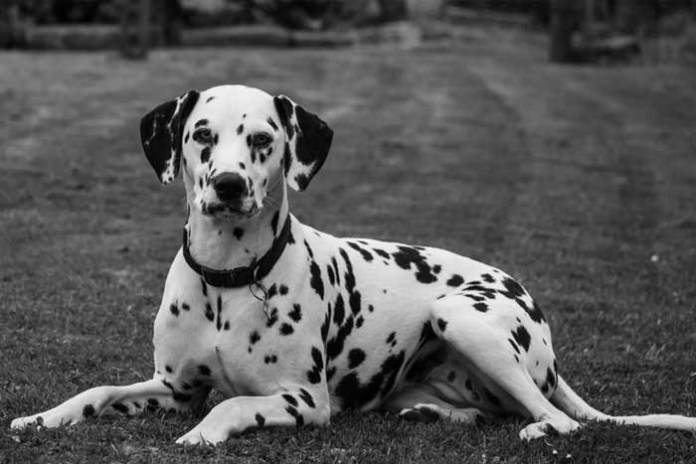
Running is an excellent exercise for people and dogs, but which breeds make the best running partners? If you’ve been training for a marathon, taking your furry friend on the run may sound like a great idea. Many of the best running breeds have been bred as hunting or herding dogs and therefore have the stamina required to keep up a good pace. However, it is essential to remember that this high-impact activity isn’t suitable for all dog breeds. In this article, marathon trainer Walter Keathing Jr. explains which god breeds are resilient enough to become running partners.
German shorthaired pointer
This breed of dog has great stamina and is perfect for people who enjoy long runs on various terrains. These hunting dogs also have a strong prey drive and love being outdoors as much as possible. However, they do have short coats that may need protection during the cold winter months.
Siberian husky
These double-coated dogs are perfect for long-distance running in cold weather conditions, as they are bred to cope with extreme weather and will happily spend most of their time outdoors. They can master any terrain, particularly in the snow, but their thick coats make them less suitable for long-distance running in hot temperatures.
Rhodesian ridgeback
This breed loves activity and can cope with long distances on any running terrain. These dogs were initially bred to chase lions and have strong characters that can make them quite challenging to train. Their short coats may need protection during the cold winter months.
Border collie
Border collies are smarter than the average dog and have endless amounts of energy. This breed is therefore easy to train and can handle anything from short runs to marathons. The border collie has been herding livestock on farmland for many years and makes an excellent companion dog.
German & Australian shepherds
These active, loyal, and intelligent breeds make a great all-around runner that can cope with any terrain. The breed tends to fare up better in cold temperatures than hot ones, but its ability to cope with demanding situations and work well with people makes it the perfect choice for committed runners.
Jack Russell terrier
This short-legged breed is perfect for trail and pavement running but can find snowy conditions a problem due to its short legs. However, don’t let its size fool you, as these little dogs were bred to chase small prey and are fast on their feet. The Jack Russell’s coat can be either wire-haired or smooth-haired and protects the breed adequately in most temperatures.
English springer spaniel
These high-energy dogs were originally bred to retrieve wildfowl and have the stamina to spend hours running around outdoors. They are not as big as some of the other running breeds, but they can keep up well with their human running partners. Springers love water, so good training will need to be carried out to stop them from heading for every water area they pass!
Labrador retriever
The Labrador has great stamina due to its sporting background. The breed is eager to please and has a weather-resistant coat that makes it the perfect year-round running companion. It is important to note that although this breed is great for running on any terrain, it can suffer from several health conditions, such as hip dysplasia and eye problems.
Dalmatian
The Dalmatian was originally bred to pull heavy loads over long distances and is known for its strength, speed, and endurance. They make perfect long-distance running partners, but it is best not to run this breed too much on rough terrain.
Weimaraner
This breed makes a great running partner, as it has lots of energy and can easily cope with long distances. The Weimaraner is easy to train and handle and will run along happily with its owner without the need for a leash. Their short maintenance-free coats are perfect for running, but winter clothing may be required during cold temperatures. Remember that his breed does have a particularly high prey drive and may need to be kept in check if squirrels or other small animals are around.
Other factors to consider
Even though plenty of regular exercises are good for dogs, too much running on hard surfaces can be harmful to their joints. So, it is a good idea to vary your running routes as much as possible to incorporate different terrains. Some surfaces can also get hot underfoot during the summer months, so it is best to go running with your dog early in the morning or in the evening when the temperature is cooler. It is important to consider the outside temperature when running with a double-coated breed, too, such as a Siberian husky or collie, as these breeds will not fare up well on hot days.
Think carefully about the type of leash you buy for your dog, as you may find it more comfortable to use a hands-free leash. Some of these leashes stretch to prevent undue strain on your shoulder sockets if the dog pulls. You may also find that some of the leash belts provide a small amount of storage that is useful for carrying things like your phone, keys, and dog treats.
It is also important to think about your dog’s diet if you are going to take it running with you on a regular basis, as an overweight dog will struggle to keep up a good running pace and could suffer some health issues due to the strain. If you go on particularly long runs with your dog, you should also remember to carry some fresh water with you to keep both you and your canine companion sufficiently hydrated.
Which dogs are not suited to running?
Some dogs unfortunately make unsuitable running partners, such as pugs, bulldogs, and shih tzus. These breeds can suffer from respiratory issues and are known as brachycephalic dogs due to their flat faces and short snouts.
Conclusion
You should not start a running program with your dog until it is around 12 months old to avoid damaging its growing muscles and joints. It is best to build up the exercise slowly on soft terrains, such as grass, and gradually encourage your dog to keep up with your pace. Once your dog gets used to running with you, it will hopefully love the experience and benefit greatly from the regular high-impact exercise.
About Walter Keating Jr.
Walter Keating Jr. is a Toronto-based fitness coach specializing in triathlon coaching and corrective exercise training. He graduated from the Fitness and Lifestyle Management Program at George Brown College and immediately started his professional career. Mr. Keating has worked as an endurance coach, personal trainer, spinning instructor, and corrective exercise trainer.











